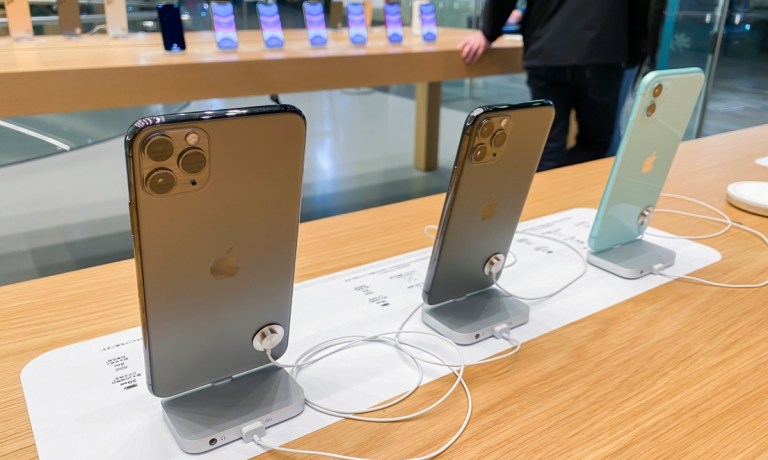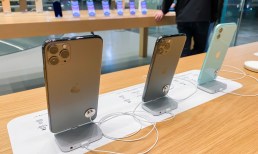Trump’s Tariff Exemption for Tech Products Could Be Short-Lived

President Donald Trump has exempted electronics from his “reciprocal” tariffs, at least for now.
The government announced late Friday (April 11) consumer electronic imports from China would be excluded from the steep tariffs the U.S. has imposed on that country.
However electronics goods such as smartphones would eventually fall under a separate round of tariffs on semiconductors, U.S. Commerce Secretary Howard Lutnick said in an interview with ABC’s “This Week” on Sunday (April 13).
“What he’s doing is he’s saying they’re exempt from the reciprocal tariffs,” Lutnick said of Trump. “But they’re included in the semiconductor tariffs, which are coming in probably a month or two.”
That could mean that tariffs on iPhones could return within weeks, he added.
“We need our medicines and we need semiconductors and our electronics to be built in America,” Lutnick said. “Remember, all — virtually all — semiconductors are made now in Taiwan and they’re finished in China. It’s important that we reshore them.”
A report on Lutnick’s comments by the Financial Times (FT) argued these remarks will generate even more business uncertainty in connection with the tariff rollout. The government has paused and reversed course on the matter more than once, causing days of stock market turmoil and leading to a wave of sell-offs in the $29 trillion U.S. Treasurys market.
The report added that any relaxation of tariffs on Chinese imports would be a victory for companies like Microsoft and Apple, the latter of which makes most of its iPhones in China.
Even before the government formally enacted the tariffs, the idea of the new levies was fostering uncertainty, as PYMNTS Intelligence found when it surveyed chief financial officers at U.S. middle-market firms in mid-February. That survey found that 20% of respondents said they would raise prices on their goods and services in response to the tariffs.
“But crucially, only a sliver said they would do so immediately as their first response to the tariffs,” the PYMNTS Intelligence report “Tariffs and Business Uncertainty: The Current State of Play, March 2025” said. “In any case, most companies hadn’t even started to plan for a global trade war.”
The report also found that 32% of these businesses said they have or will miss opportunities due to that uncertainty, 33% faced delays in getting products to market, and 31% saw client turnover because of their own uncertain business outlooks.
“Let that sink in,” PYMNTS CEO Karen Webster wrote in response to those findings. “That’s roughly a third of U.S. businesses making between $100 million and $1 billion in annual revenue — and the integral bridge between the enterprise and small business supply chains — who face some sort of economic uncertainty.”



